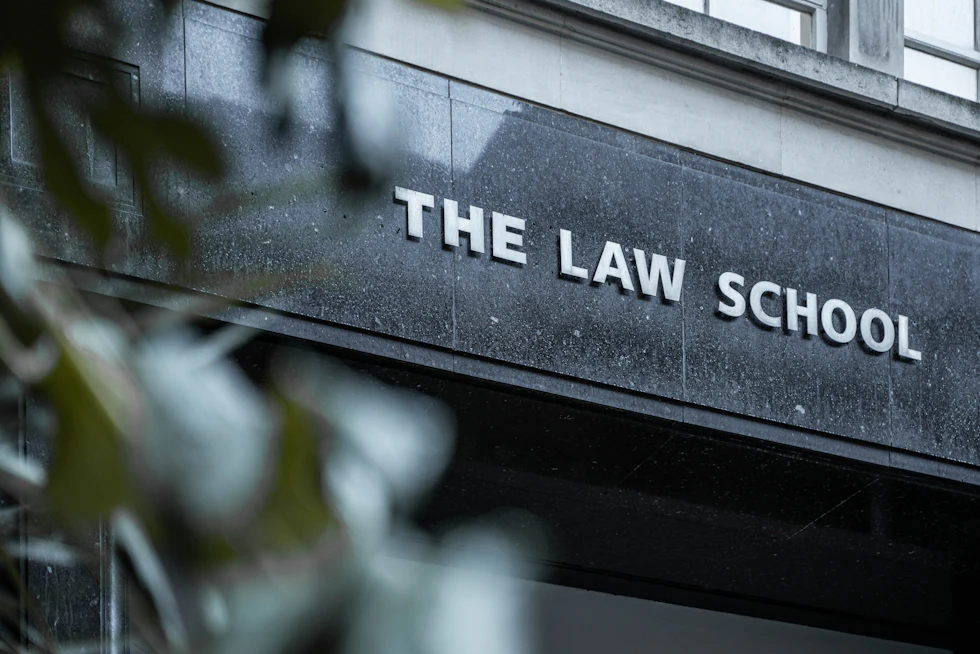LPC vs SQE
The legal landscape in England and Wales has undergone a significant transformation with the introduction of the Solicitors Qualifying Examination (SQE). This new assessment replaces the traditional Legal Practice Course (LPC) as the primary route to becoming a solicitor. Aspiring solicitors must now navigate the SQE's two stages, focusing on both legal knowledge and practical skills, and complete two years of Qualifying Work Experience (QWE).
Jump to
While the LPC offered a structured path through university courses, the SQE provides greater flexibility, allowing candidates to prepare through various training options like online learning, apprenticeships, and work-based experience. This shift aims to create a more accessible and standardised qualification process, ensuring all candidates meet consistent competency standards regardless of their chosen training route.
Although the LPC is being phased out, there is a transition period for those who started their legal journey before September 2021. These individuals can still qualify under the LPC route, provided they meet specific requirements and deadlines. However, as of January 2025, the LPC is no longer offered by BPP, making the SQE our recommended path for aspiring solicitors.
Difference between LPC and SQE
LPC
The Legal Practice Course (LPC) was historically the standard vocational training course required for aspiring solicitors in England and Wales. It focused on practical legal skills, including advocacy, drafting, and interviewing, alongside compulsory modules in business law, property law, and litigation.
The LPC curriculum was designed to bridge the gap between academic legal studies and the practical realities of legal practice. Students were exposed to real-world scenarios and simulations, allowing them to apply legal principles to practical situations and develop their problem-solving abilities. Additionally, the LPC included a strong emphasis on professional ethics and conduct, ensuring that graduates were well-prepared to meet the high standards expected of solicitors.
However, since January 2025, the LPC is no longer offered by BPP for new students. If you are already on the LPC route, you can still qualify under this pathway, but for new students, the Solicitors Qualifying Examination (SQE) is now the primary route to becoming a solicitor.

SQE
The Solicitors Qualifying Examination (SQE) is the new standardised assessment introduced by the Solicitors Regulation Authority (SRA). It is divided into two stages:
SQE1: Tests functioning legal knowledge across core areas like contract, tort, and criminal law.
SQE2: Focuses on practical legal skills, including client interviewing, legal drafting, case analysis, and advocacy.
In addition to passing both exams, candidates must complete two years of Qualifying Work Experience (QWE) in a legal setting before they can apply for admission as a solicitor. The SQE assesses candidates' ability to apply legal knowledge and skills in a practical context, ensuring they are competent to provide legal services to clients.
The SQE provides a more flexible route to qualification, allowing candidates to choose from various preparation methods, including self-study, online courses, and apprenticeships. This flexibility enables candidates to tailor their learning to their individual needs and circumstances, while still ensuring they meet the required standards of competency.

Is the LPC being phased out?
SQE is replacing LPC
The SQE is now the sole qualification route for aspiring solicitors. While the LPC provided structured training through university courses, the SQE offers a more flexible approach, allowing candidates to prepare through various training options, including online learning, apprenticeships, and work-based experience.
The shift to the SQE aims to create a more accessible and standardised qualification process, ensuring all candidates meet the same competency standards, regardless of their training pathway. This also aligns with the SRA's goal of promoting a diverse and inclusive legal profession by removing barriers to entry and allowing candidates to demonstrate their skills and knowledge in a way that suits their individual circumstances.

Can you still qualify as a solicitor with the LPC?
If you have already started the LPC, you can still qualify under this route as long as you:
Completed a Qualifying Law Degree (QLD) or Graduate Diploma in Law (GDL) before September 2021.
Secure a training contract with a law firm.
Complete the Professional Skills Course (PSC) and other regulatory requirements.
However, for new entrants, the SQE is now the only route available to becoming a solicitor.
Transition period for the LPC and SQE
A transition period allowed candidates who had started their law journey before September 2021 to continue with the LPC. However, this window closes in 2026, meaning that anyone still considering the LPC must ensure they can complete the qualification and secure a training contract in time.
Since January 2025, the LPC is no longer available at BPP, and all prospective solicitors will need to follow the SQE route instead. Those who are eligible to qualify under the LPC route must ensure they meet all requirements and deadlines. This includes completing the Professional Skills Course (PSC), securing a training contract, and fulfilling any other regulatory requirements within the specified timeframe. It is crucial for candidates to carefully manage their time and resources to successfully transition to a solicitor role under the LPC route before it is fully phased out.

Is the SQE harder than the LPC?
The SQE introduces a different way of assessing legal knowledge and skills, making it difficult to directly compare with the LPC. Here are some key considerations:
The SQE1 is heavily multiple-choice based, testing core legal knowledge in a more structured, objective way.
The SQE2 focuses on practical legal skills, similar to elements of the LPC.
The cost of the SQE is generally lower than the LPC, but candidates must arrange their own preparation courses and study plans.
Unlike the LPC, which had structured university-based assessments, the SQE is a national exam with pass/fail thresholds set by the SRA.
Ultimately, whether the SQE is "harder" depends on the individual’s learning style. Some may find the LPC’s coursework and structured assessments easier, while others may prefer the SQE’s flexibility and ability to integrate work experience. Pass rates for the SQE are also not yet as established as those for the LPC, so it may be more difficult to gauge the level of difficulty and compare it directly to the LPC.
Ready to take the next step?
If you’re considering the SQE as your route to qualification, BPP offers tailored SQE preparation courses designed to help you pass the exams and gain the necessary legal skills for practice.
You can also check out our SQExpert Jonny Hurst’s review on LPC or SQE on his independent YouTube channel.

Frequently Asked Questions (FAQs)
If you are a new student, you should take the SQE, as the LPC is being phased out and is no longer offered by BPP. The SQE is now the only route to qualification as a solicitor in England and Wales, and it offers a more flexible and accessible pathway for aspiring solicitors.






